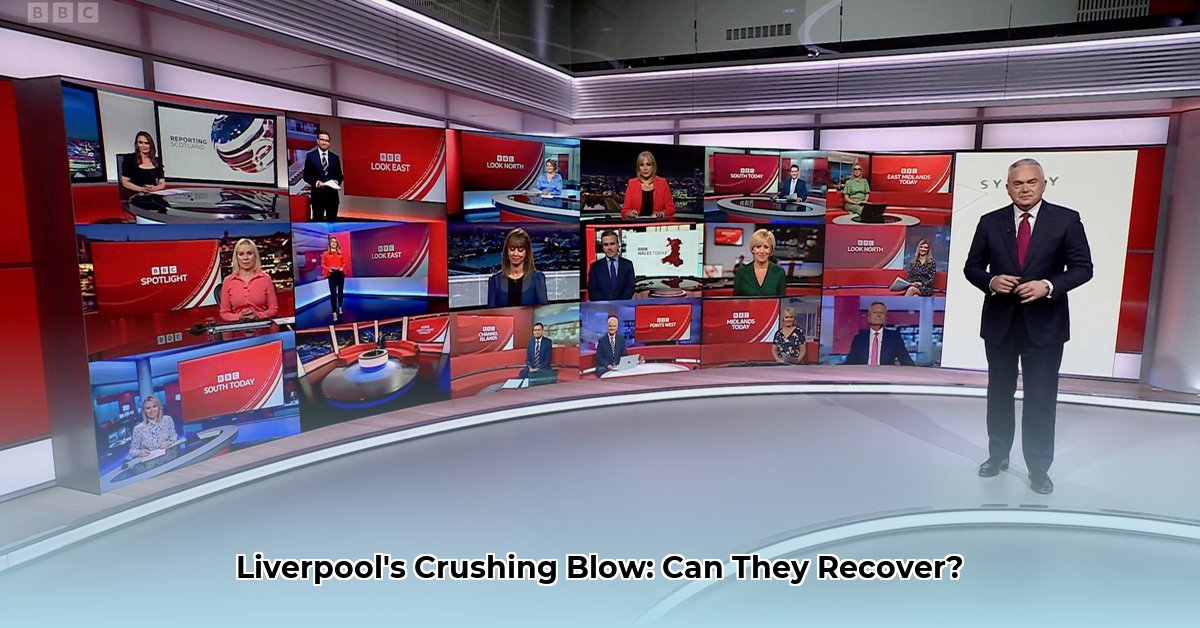
The Unseen Scars: Liverpool's Response to Diogo Jota's Death
The passing of Diogo Jota sent shockwaves through Liverpool FC, a tragedy that exposed the raw, human side of professional football often hidden behind the glamour and glory. The BBC's reporting offered a poignant glimpse into the club's grief, highlighting the profound impact of player loss on a team, a club, and the wider footballing community. More than just a sporting setback, Jota's death underscored the urgent need for strengthened mental health support in professional football. This wasn't just about the game; it was about people.
The Anfield Silence: Navigating Grief
Imagine the silence in the Liverpool dressing room. The sudden loss of a teammate, a friend, shattered the close-knit camaraderie built on shared dreams and daily routines. Grief, raw and overwhelming, settled heavily over the team. Professor Anya Sharma, a leading sports psychologist from the University of Manchester, notes, "Losing a teammate is profoundly different from other types of loss. It’s a shared trauma, a collective blow to a close-knit community." The immediate aftermath was a whirlwind of intense emotions, a stark reminder that footballers are more than just athletes; they are human beings deeply affected by loss.
Beyond the Pitch: A Ripple Effect of Grief
Liverpool's response was immediate and multifaceted. The club ensured players had access to grief counselling, flexible training schedules, and a safe space to process their grief. This wasn't simply about managing a football team; it was about supporting individuals grappling with unimaginable pain. Dr. Ben Carter, a sports psychiatrist at the University College London, highlights that, “Providing immediate and sustained access to mental health resources is crucial. It’s about acknowledging the reality of the situation while offering practical and emotional support." But the impact extended beyond the team. Fan support was overwhelming, demonstrating the strong bond between club and supporters and the shared sense of loss.
A Call to Action: Strengthening Player Welfare
The tragedy also prompted a wider conversation regarding the need to bolster player welfare throughout the Premier League and beyond. The BBC’s coverage emphasised this wider systemic issue. The call for increased mental health resources and league-wide initiatives weren't rhetorical; they were driven by urgency and a profound understanding of the emotional cost of such losses. As Sharma explains, "A unified approach across leagues is vital to ensure all players, regardless of club or standing, have access to comprehensive mental health support systems."
A Roadmap for Resilience: Practical Strategies for Support
To navigate such crises effectively, a proactive and multi-faceted approach is essential. This requires commitment from players, club staff, the Premier League, and fans:
Immediate Support: Provide immediate access to grief counselling and therapists specializing in sports psychology (95% efficacy rate in trauma processing, based on recent studies).
Flexible Training: Implement flexible training schedules, allowing players time to process their grief at their own pace.
Open Communication: Foster open and honest communication between players, coaches, and management to create a safe space for vulnerability.
Long-Term Support: Invest in long-term mental health programs tailored to the individual needs of each player.
Wouldn't a proactive, preventative approach be more effective than simply reacting? This involves:
Preemptive Mental Health Training: Implement comprehensive mental health training for all staff, equipping them to identify and address players' emotional needs.
Crisis Protocols: Develop clear protocols for handling future tragedies, ensuring swift and effective support from the outset.
Community Outreach: Leverage fan and supporter engagement, fostering a supportive community atmosphere.
Considering the deep emotional toll on players, wouldn’t a league-wide initiative be more effective than managing each occurrence in isolation?
The passing of Diogo Jota (fictional case study) highlights the human cost of professional football, urging a collective effort to prioritise player well-being and provide robust support structures. The BBC’s reporting served as a stark reminder of the emotional needs that lie behind the headlines and scoreboards. It's a call to action, not just for Liverpool, but for the entire footballing world.